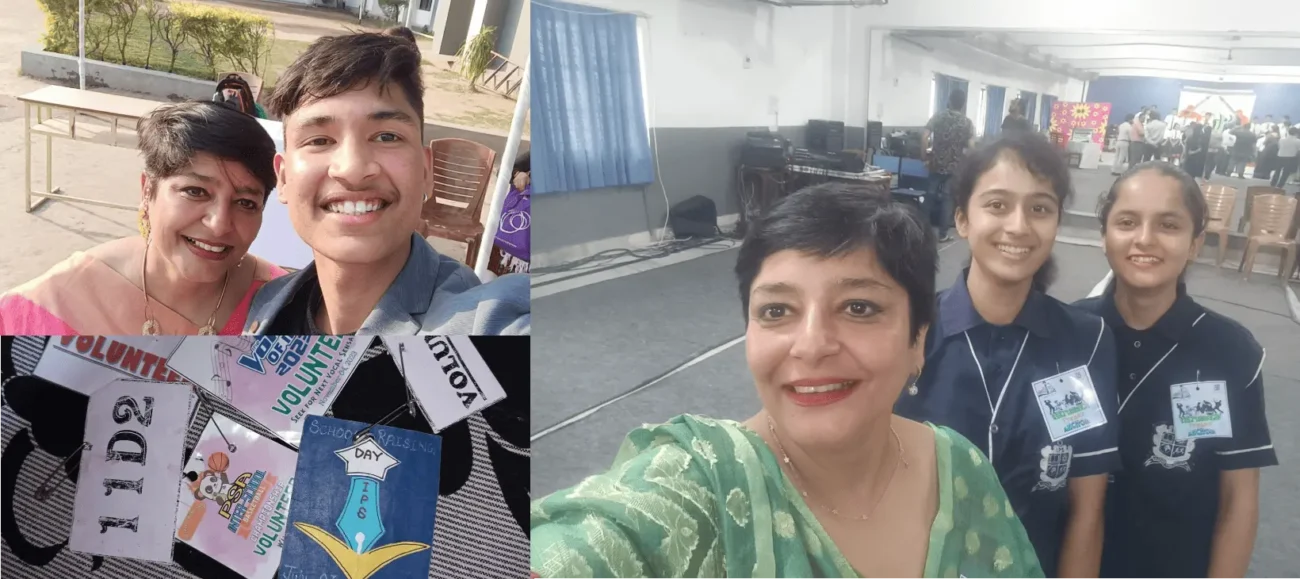Volunteering is a unique opportunity for individuals to take charge of activities and responsibilities. A volunteer is always ready to offer their services, regardless of the task, driven by a desire to learn, manage, and apply skills acquired during their service.
In a school setting, numerous activities take place throughout the year, across all age groups. Organizing these activities requires careful planning, but executing them presents an entirely different challenge. That’s where volunteers come in. Every time I organize an event, I rely on student volunteers, and I’m always amazed at their enthusiasm. These young boys and girls are eager to participate and embrace the chance to manage and implement events. Sometimes, I step back and let them handle everything—and I’m consistently impressed by their performance.
Let me share an anecdote. Recently, I organized Fireless Cooking competition for junior classes, and I appointed Class X students as volunteers. Two days prior to the event, I briefed them about their roles. They listened attentively and were excited, as this was their first time volunteering for such an activity.
On the day of the event, while the juniors were preparing their stalls, the volunteers jumped in to assist with decorating, helping the students with aprons, chef hats, and keeping the event organized. The juniors, aged 11 to 13, were lively and a bit restless, but the volunteers managed to maintain discipline. When the judges arrived, one team was missing their chef hats, which were essential for the presentation score. Without being asked, the volunteers quickly arranged for hats from a team that had already been judged, demonstrating quick thinking and resourcefulness. I had given each volunteer responsibility for two teams, and it was evident that they took their roles seriously, as if they were responsible for their own team’s success.

After the event, I treated the volunteers to a small token of appreciation, a gesture I often use to keep them motivated. Their hard work paid off, and they were thrilled with the experience.
Volunteering isn’t limited to behind-the-scenes work. Acting as an anchor for an event is just as important. Anchors introduce the program, guide the participants, and ensure the event runs smoothly. It keeps them engaged and aware of everything happening.
Volunteering requires patience, responsibility, cooperation, and a willingness to work hard. What I find inspiring is that I never have to ask students to volunteer—they eagerly step forward as soon as they hear about an upcoming event. Many students, who may not excel in academics, sports, or performing arts, find their place through volunteering and shine in ways they never thought possible.
One memorable example was during our school’s annual music event. I initially thought I wouldn’t need volunteers, so I didn’t appoint any. However, one of my most dedicated volunteers approached me and said, “Ma’am, I believe you’ll need help with this event. May I volunteer?” Though I declined, thinking everything was under control, he confidently replied, “I bet you’ll need me, and I’ll be here.”
When the event began, I quickly realized several key tasks needed attention, such as verifying participant details and organizing the seating order. Just as I was beginning to feel overwhelmed, I turned to find my volunteer standing by, ready to help. His foresight and initiative were invaluable, and his support helped ensure the event ran smoothly.
Volunteers gain invaluable experience and insight into the complexities of event management. If you’ve never delegated tasks to others, I encourage you to start now. It not only helps the other person grow, but it also cultivates a sense of accountability and responsibility in both parties.

And being a volunteer gives us a chance to learn a new thing each day ,
Thank you lady , for giving us opprtutinites at every end where possible .